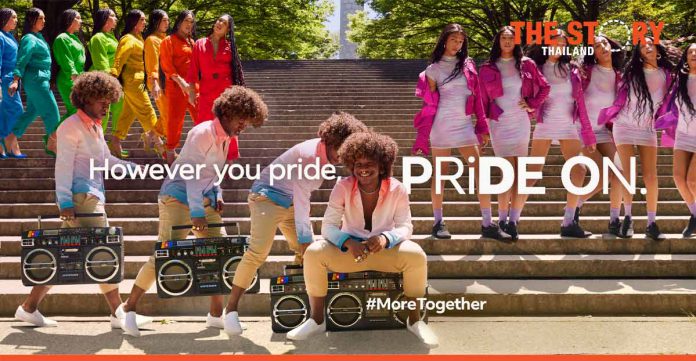Thailand’s third wave of COVID-19 has had a profound impact both socially and economically as people continue to stay safe and spend more time at home. The pandemic has also particularly effected Thailand’s LGBTQ community: forcing some to return to less accepting households; job security, and coming during the postponement of legislation that could provide greater rights to same-sex couples.
As we celebrate Pride month, to celebrate the achievements of the LGBTQ community and reflect on what still needs to be done, it is important to recognize the extraordinary community leaders finding innovative ways on our platforms to connect the community together online to celebrate., and who are role models of change and progress.
- Personalization will be key to the post-pandemic customer experience journey
- A view from 29-year-old Flash Express CEO Komsan Lee
During her early days at Chiang Mai University, Chitsanupong ‘Best’ Nithiwana experienced a life where students were not allowed to dress according to their gender identity at graduation. Passionate about creating a more inclusive culture, Best participated in an online movement to allow LGBTQ students this right and succeeded in being part of the first graduating class ever to be allowed to dress according to their identity.
Seeing this ability to create tangible change, Best established Young Pride Club in 2018 supported by WSC CMU, to create a safe learning space for youth interested in gender equality and the LGBT+ community and provide activities to develop leadership, participation, and cooperation for advocacy. Since its founding, the community has collaborated with more than 50 NGOs, developed over 50 young LGBTQ leaders across four Thai regions, and reached 40,000 followers on its Facebook Community Page.
Creating Safe Spaces Online for Shared Understanding
Best understood the isolation that LGBTQ people face every day – and even more so during the pandemic – and digital channels quickly became a fundamental part of growing the community. “Sometimes, it is difficult to have a physical event due to the nature of our content, as it might be seen as niche or uncomfortable to some people. Social media, and Facebook in particular, allows us to have a voice and space to discuss the key issues facing our community, including legislation related to same-sex marriage, which is an extremely popular topic for people.”
Young Pride Club uses Facebook as a main communications channel to highlight its activities and create a safe space for people to discuss, debate and promote content that is related to the LGBTQ community. Further, the community uses Messenger from Facebook to allow members to privately contact the team and feel comfortable to share their experiences and questions.
To expand her digital knowledge and leadership skills, Young Pride Club was selected as one of 77 communities across six regions to participate in last year’s Facebook Community Accelerator program, which equipped leaders with the training, mentorship, and funding needed to grow their communities.
Remarking on the experience, Best said, “You must never stop learning about your target groups – and other communities as well. After joining this program, we saw other communities such as OOCA, who have clear business models. This inspired us to transform into a social enterprise – not just relying on grants but allowing us to be stronger on our own. This is a program where you get to see different community leaders with different skills, so you can learn from each other.”
As countries around the world celebrate Pride Month, there are still issues facing the community – be it bullying, marginalization or microaggressions – that are often caused by misunderstandings. Even as Thai society becomes more open, Best believes continued learning, both within and outside of the LGBTQ community, is crucial to creating better understanding.
“We see that many businesses are paying attention to the LGBTQ community this month, and it is good that people acknowledge Pride, but we must always look further. The public see Thai LGBTQ people can be entertainers – but why not in white-collar jobs as well? Like every community, LGBTQ people have the skills to serve in many functions, but it seems the roles available to them are still limited.”
As new groups join the community, including those who identify as asexual or non-binary, Best believes more dialogue is the key to acceptance.
Best concluded, “We need to continue educating each other to make everyone feel like they belong, and platforms such as Facebook are important to creating that societal understanding.”





